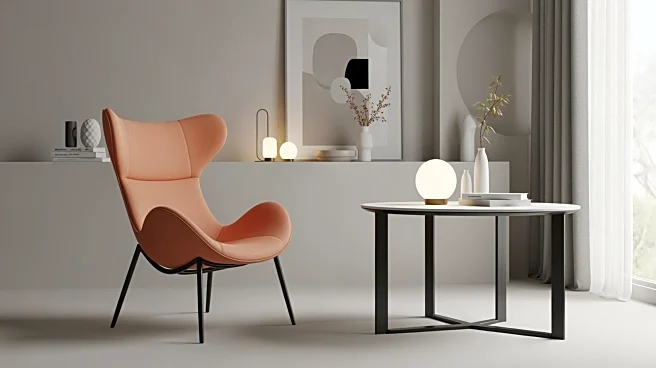What's Happening?
IKEA has announced price increases on several big-ticket items as a direct result of President Trump's tariffs on furniture imports. The tariffs, which include a 10% rate on wood and timber and 25% on upholstered
furniture and kitchen cabinets, have forced IKEA to pass on some of the increased costs to consumers. Despite efforts to maintain affordability, the company has had to adjust prices on items such as the Uppland sofa and a three-piece oak bedroom set. IKEA's sales have seen a slight decline, and the company is exploring ways to source more products domestically to mitigate the impact of tariffs.
Why It's Important?
The tariffs imposed by President Trump are affecting consumer prices, particularly in the furniture sector, which could lead to broader economic implications. As businesses like IKEA adjust their pricing strategies, consumers may face higher costs, potentially impacting spending habits and economic growth. The tariffs also highlight the challenges faced by companies reliant on international supply chains, prompting a shift towards domestic sourcing. This situation underscores the complex interplay between trade policies and consumer markets, with potential ripple effects across various industries.
What's Next?
IKEA and other retailers may continue to adjust their pricing strategies in response to ongoing tariff impacts. As tariffs are set to increase further next year, businesses will likely explore more domestic sourcing options to reduce dependency on imports. The broader economic environment, including consumer inflation rates, will be closely monitored as companies navigate these challenges. Stakeholders, including policymakers and industry leaders, may engage in discussions to address the long-term implications of trade policies on consumer markets.










